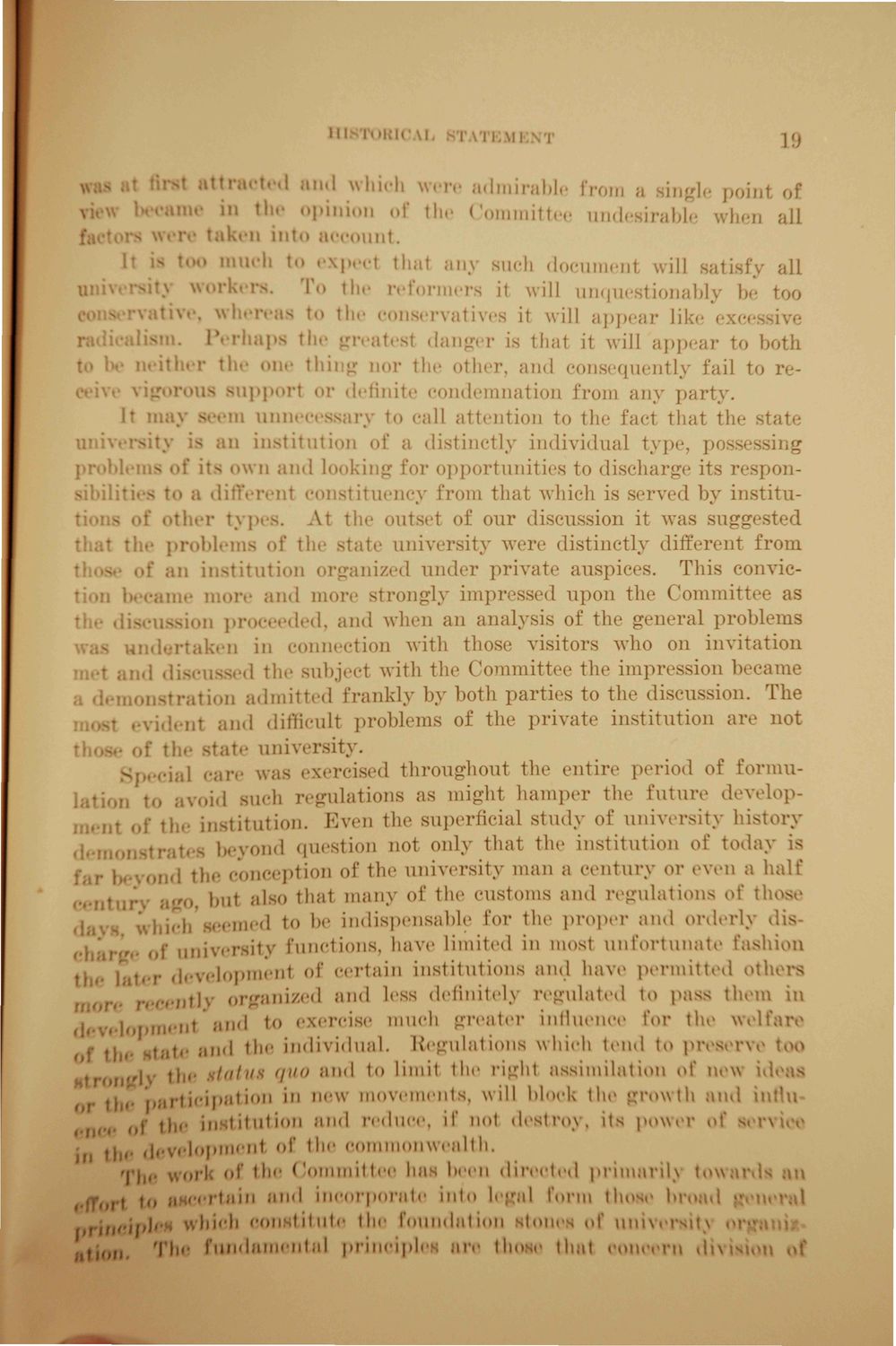Caption: Booklet - UI Senate Committee for Establishing UI Constitution (1915)
This is a reduced-resolution page image for fast online browsing.

EXTRACTED TEXT FROM PAGE:
H i \l ! , jg 1 *1 tl n < ik [ !l ' ;m wh \ opinion oi' th in idrairabl I mmitfc fi m 8 sing] point of und< rable wl all oo i int<> a< It is I much • i that anj such document will sat uni a v To tl • reformei it will unquestionablj I •vli.-r 3 t o tl 01 r\;iti\ i it will a p p i r 1 i 1: :•:<• tl \ 1 Perl ; - tl Ian- ,• is that it will appear to both tl one 'hi nor the other, and consequently fail to i - sup] • or definil condemnation from any party. in Unn< an to ' a l l a t t e n t i o n to t h e fact t h a t t h e stal D sit) is n in itution of a distinctly individual type, poss ing s< i<- ^\! nd lookii p opportuniti \ to discharge its i sponi - to li' n1 constituency from that which is rved by institutions otin-r ty] . At the outsel of our discussion it was suggested that ti • probl is i the Stal uni\ sity were distinctly different from : thoe ins tut Q ( nized under prival auspices. This conviction 1 an. I more strongly impressed upon the Committee as ission pi d md when an analysis of the general problems v s under n in tion with those visitors who on invitation and tl mbjed with the Committee the impression became D admitted frankly by both parties to the discussion. The (>>T Qd difficult problems of the private institution are not ,..- ,,f th tate nni\ rsity. i Was exercised throughout the entire period o\' formuoid such regulations as might hamper the future developinstitution. Kvrn the superficial study of university history 3 beyond question not only that the institution o( today is ..ntUI • )H nception of the u n i v e r s i t y m a n a c e n t u r y or even a half |,,it also that m a n y of the c u s t o m s a n d r e g u l a t i o n s o( tlu - ^ f I | ) . ( | to be i n d i s p e n s a b l e for t h e p r o p e r a n d o r d e r l y dis- in'pi )t university functions, have limited in most unfortunate fashion , p dcvelopmenl of certain institutions and have permitted others ,P. organized and less definitely regulated to pass them in lonment and to exercise much greater influence \'ov the welfari ", sf; ;|II,| the individual. R e g u l a t i o n s which t e n d to p n s c r \ > ,r\ -he ntatus quo and to limit the righl assimilation oi new ideas ' ticipation in new movements, will block the growth id in u t( § f i H . in 'itution and reduce, if no1 destroy, ds power of s KV [unent of the commonwealth. t, r|r, Th« work of the Committee has been directed primarily towards an n ,,, rtain and incorporate into I d form those l>r< « 1 p|cH w h i c h e o u : t i! u t e t h e I'ou IM In t i< »i i itoili of u n i \ t\ T! f u n d a m e n t a l |irim-i|>!«-« ai lie t h a t I HU Ml d i v i s i o n f
|